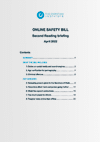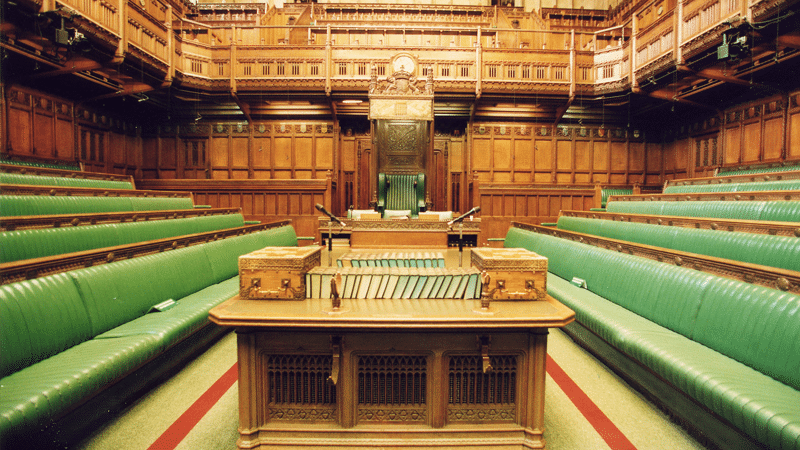MPs have called for more robust free speech protections to be included in the Government’s Online Safety Bill ahead of it passing its Second Reading in the House of Commons.
While parliamentarians welcomed measures designed to safeguard children online and action against illegal content, a number warned the Bill puts free speech at risk.
The Bill will incentivise social media companies and search engines to restrict content which is ‘legal but harmful’ to adults and will empower Government ministers to decide what this covers. It now moves to Committee Stage.
Harmful?
Adam Afriyie, the Conservative MP for Windsor, argued Parliament must not give social media companies “the powers or the incentive through financial penalties to shut down freedom of speech just in case something is seen to be harmful by somebody”.
Former Communities Secretary Robert Jenrick raised similar worries, telling the House of Commons: “I come to this Bill with concerns about its impact on freedom of speech”.
Fellow Conservative and former Culture Secretary John Whittingdale, Jamie Stone of the Liberal Democrats, and the SNP’s John Nicolson also questioned the sweeping powers given to the Secretary of State under the Bill.
Censorship
The DUP’s Carla Lockhart said: “In building the Bill, a logical cornerstone would be that what is illegal offline—on the street, in the workplace and in the schoolyard—is also illegal online.”
She warned against allowing “what is legal but harmful” to be decided by Secretary of State without “parliamentary scrutiny”.
“Without robust free speech protections, all the weight of the duties on content that is legal but harmful to adults will be pushing in one direction, and sadly, that is censorship.”
Free expression
Former Cabinet Minister Damian Green called for amendments to the Bill to ensure “access to journalism and content from recognised news publishers” is not “moderated, restricted or removed without notice or right of appeal” by Big Tech companies.
But Gavin Robinson MP, while agreeing it was “right that there should be protections” for journalists, observed: “article 10 of the Human Rights Act does not distinguish between the average Joe and somebody who is providing academic or journalistic content, so should we?”
“It is right that we provide protection for those individuals, but what about anyone else who wishes to enjoy freedom of expression in the online domain?”
Radical amendments needed
Ahead of the debate, in a briefing sent to MPs, The Christian Institute warned that the Bill needs radical amendments to prevent it from trampling on free speech.
The Government has introduced an Online Safety Bill to bolster regulation of the internet. It risks unfashionable views – like biblical teaching on sexual ethics – being censored because some people don’t like them. This could profoundly limit religious freedom and debate. If something is legal to say offline, it should be allowed online.
The Institute explained that there is currently no clarity as to what legal content will be considered ‘harmful’. As this will eventually be laid out in secondary legislation, it pointed out that power to amend it will be the prerogative of the Secretary of State of Culture.
The briefing also warns that because tech companies could be fined up to ten per cent of their annual global turnover if they fail to uphold their new duties, they are likely to censor “far more than they need to”.
And it notes that the Bill will also turn Ofcom “into the most powerful internet regulator in the West”, warning that given Ofcom and its predecessors’ track records on censoring Christian broadcasts, “free speech will be the loser”.



